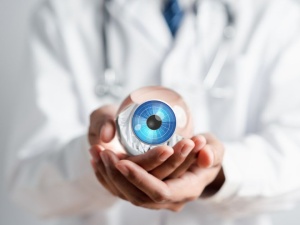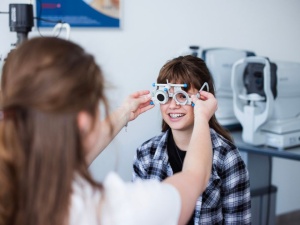Myopia or nearsightedness is a refractive error that affects over 40% of people in the U.S. It causes distant objects to appear blurry while close objects remain clear. If you have this eye problem, you might experience headaches, constant squinting and eye strain. Moreover, myopia often occurs in childhood and can be corrected with prescription eyeglasses or contact lenses.

It’s crucial to visit your local eye clinic if you believe you have myopia for proper diagnosis and treatment. Keep reading to discover what can happen if this condition remains unmanaged.
What Are the Risks Associated With Untreated Myopia?

Myopia happens due to the elongation of the eyeball or curvature of the cornea, focusing light in front of the retina rather than directly on it. When myopia goes unchecked, it doesn’t merely stagnate. It often progresses, worsening one’s vision over time. The implications of untreated myopia extend far beyond needing stronger corrective lenses.

Your eye specialist might diagnose you with high myopia if you have a prescription greater than -6.00 diopters. High myopia can heighten the risk of serious eye conditions, including retinal detachment, glaucoma, cataracts and macular degeneration. Each of these can lead to significant visual impairment or even blindness.
What Can You Do to Protect Your Vision?

While myopia has no cure, there are habits you can start that can benefit your overall eye health. One of which is taking frequent breaks from digital devices. You should avoid working or reading in poorly lit spaces. Don’t forget to wear UV-blocking sunglasses to protect your eyes from the sun when heading outdoors.

What you eat can also affect your eye health. Incorporate foods rich in vitamin A into your diet, including carrots, sweet potatoes, red bell peppers and eggs. Vitamin C safeguards your eyes against oxidative damage. You’ll find it in oranges, strawberries, tomatoes, brussels sprouts and broccoli. Another nutrient good for your eyes is lutein, usually found in leafy greens.
Why Are Regular Eye Exams Essential?

Regular eye exams are essential in catching myopia early, especially in children, where intervention can significantly alter the course of progression. Routine eyeglasses or contact eye exam appointments can help your eye doctor monitor vision changes. It will also allow them to spot early indications of serious eye conditions, such as glaucoma, cataracts and macular degeneration.

